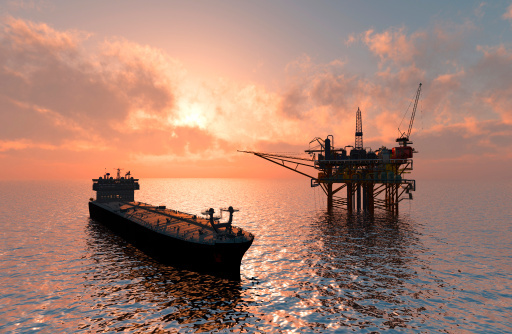Perhaps you read the USA Today editorial on August 19 that concludes with: “the most important gains could come from radical shifts that are as unanticipated as was North America’s emergence as an oil and gas powerhouse.” It points out “that free enterprise has a way of solving problems that is beyond the capabilities of government.” And continues: “The surge in domestic oil and gas production—spurred on by such new techniques as hydraulic fracturing (or ‘fracking’) did not come about as the result of government energy polices, but largely in spite of them.”
Other oil producing countries are taking note.
Mexico has huge oil-and-gas reserves— estimated at 115bn barrels of oil equivalent, comparable to Kuwait’s—but lacks the technology to develop non-conventionals, such as shale gas and deep-sea crude. President Pena Nieto is looking to make reforms that would allow foreign companies to partner with the state-owned oil company, Pemex, to bring the wealth to the surface.
The Saudi Prince Alwaleed recently warned: “the kingdom’s oil-dependent economy is increasingly vulnerable to rising U.S. energy production.” Alwaleed’s comments were penned before Mexico announced its intended energy reforms. The thought of Mexico’s resources flowing on to the global market has got to make the prince increasingly nervous.
The reality of North America becoming an “oil-and-gas powerhouse” threatens more than just OPEC nations. In response to the USA Today editorial, Frances Beinecke, president of the Natural Resources Defense Council (NRDC), wrote an “opposing view” proclaiming: “Increasing domestic oil and gas production is no panacea for our nation’s energy needs or economy.”
Energy and the Economy
Apparently, she is not aware that regions with oil-and-gas development have some of the lowest unemployment in the country—states with resource extraction such as Texas, Montana, Oklahoma, and Wyoming all have unemployment rates below the national average and North Dakota has the lowest in the country at 3.9%. My home state of New Mexico shares the rich Permian Basin with Texas. There, they tell me: “Anyone who can pass a drug test can get a job.”
Due to the increasing domestic resource development, President Obama’s stated 2010 goal of doubling exports by 2015 has already been met—though not through his initiatives, and in fact, in spite of them. Alan Tonelson, an economist at the US Business and Industry Council, says: “When the president talks about trade, when he talks about creating middle class jobs, when he talks about turning the US economy into an economy that lasts, he usually talks about manufacturing, those are the classic American living wage jobs. There’s no chance that he’s been thinking mainly about petroleum.”
Rayola Dougher, a senior economic adviser at the American Petroleum Institute, sums up the economic impact of oil and gas on the economy: “We have been a real engine of growth at a time when other industries have been languishing.”
Gas Prices
Next, Beinecke states: “U.S. oil production may be up 44% since 2008, but so are prices. The costs of crude oil have risen 6% in that time.” While this claim appears to be accurate on the surface, it ignores the fact that the Federal Reserve has driven the value of the dollar down. In his Forbes article, “The rising price of the falling dollar,” contributor Charles Kadlec, explains: “The real price of the on-going debauchery of the dollar is measured by the loss of our prosperity and the debasement of our liberty.” Similarly, Paul Streitz, in American Thinker, draws the connection between our national debt and the price of oil: “excessive spending means monetizing our debt, which means printing money, which means foreign oil producers want more of it for the same barrel of oil.”
Fracking
Of course, Beinecke resorts to the environmentalists’ standard claim: “The fracking that is driving our oil and gas surge has grown at breakneck speed.” She continues: “states have responded with weak rules and limited enforcement.” Environmental groups, like Beinecke’s NRDC, want federal government to add regulation on fracking—which will increase the cost and slow the growth of drilling.
Friday, August 23, was the deadline for public comment on the Bureau of Land Management’s (BLM) draft rule to regulate hydraulic fracturing on federal lands. Oklahoma Attorney General Pruitt and attorneys general from four other states sent a letter to the BLM, objecting to the agency’s intent to duplicate the state’s long-standing regulation of hydraulic fracturing. “States have been regulating hydraulic fracturing for more than 40 years with great success. This proposed rule is just another layer of unnecessary regulation that will cause significant delays and hinder natural gas production,” General Pruitt said. “The Supreme Court has made it clear that regulation of water and land use is a state and local power, and no law gives an agency such as the BLM the authority to pre-empt state regulations.”
Environmentalists’ hyperbole about the use of hydraulic fracturing would lead the general public to believe that the practice is new. In fact it has been successfully used to extract oil and gas for more than 60 years—and, over the decades, it has been refined and made giant technological leaps. Attempts to link fracking to water contamination have repeatedly been disproven.
Climate Change
Then her “opposing view” takes the climate change tack: “more oil and gas production will only exacerbate climate change … Last year alone, Americans suffered $140 billion in crop losses, wildfires, storm damage and other impacts of extreme weather made worse by climate change.” Once again, baseless charges.
The $140 billion in crop losses pertains to the 2012 drought, but the National Oceanic and Atmospheric Administration Drought Task Force, put together to examine whether or not “human-caused CO2-fueled global warming” was the cause, said, in a report, dated March 20, 2013: “natural variations in weather patterns caused this sudden ‘flash drought,'” and “The report rules out global ocean conditions as well as human-induced climate change, as major culprits.”
Additionally, as I addressed last month, Dr. Roger Pielke, Jr., from the University of Colorado, at the Senate Environmental and Public Works Committee hearing on climate, testified to the effect that Weather Related Disaster losses globally as a percentage of GDP had actually decreased by about 25% since 1990, while droughts have “for the most part, become shorter, less frequent, and cover a smaller portion of the U S over the last century.” Other figures of merit, hurricane frequency, intensity, damages, landfalls, and ‘accumulated tropical cyclone energy’ have shown no trends over long periods of record. Floods have not increased, flood losses have gone down significantly, while tornadoes have not increased in frequency, intensity, or normalized damage since 1950, and there is some evidence to suggest they have actually declined. Beinecke is either ignorant of the facts, or guilty of deliberately misstating information.
The wildfires Beinecke mentions are connected to the drought and add drama to her comments as we are currently fighting wildfires in 11 western states. However, the true blame falls squarely on the forest management plans as enacted by the US Forest Service, which has allowed the forests to be overgrown and unhealthy. Keeping the forest healthy through thinning costs about $600 per acre, but fighting a forest fire can cost nearly four times more.
CAFE Standards
One of her last assertions is: “Our new 54.5 mpg fuel standards will cut oil imports by one-third and save consumers $1.7 trillion at the pump.” The 54.5-mpg figure is a standard that Obama announced in 2009 and it applies to the fleet average a company must have. Because Americans continue to purchase more trucks and SUVs with much lower mpg, a company must produce cars like the Volt or the Leaf that are measured at 93 and 99 mpg equivalent. Overall the average might come out in the mandated range. BMW recently announced the introduction of its first electric car, the i3. They are moving into electric cars, not because of customer demand, but “to meet regulatory requirements.” The Wall Street Journal reports: “The car will earn emissions credits for BMW in markets such as California, reducing the likelihood that BMW will have to pay fines for failing to comply with carbon dioxide restrictions and giving BMW headroom under those rules to keep selling its more profitable internal combustion models.” While electric cars may slightly reduce gasoline use, they really still run on fossil fuels—namely coal.
I close my examination of Beinecke’s “view” with this: “True energy independence means reducing our reliance on oil and gas by investing in America’s abundant clean energy resources that can power our country and boost our economy without endangering our health and climate.” I believe that we all want to end US dependence on oil imports from countries that wish to destroy us. But nebulous “clean energy resources” will not do that. When environmentalists refer to “clean energy,” they are most often referring to wind and solar—which produce electricity, albeit ineffectively, inefficiently and uneconomically. Only a tiny fraction of electricity in the US is produced from oil. The oil we import goes toward the transportation fleet. Until there are quantum leaps in technology, there will never be a massive shift from petroleum-based vehicles to electric. So Beinecke’s dream of “clean energy resources” will not reduce our “reliance on oil and gas.”
The title of Beinecke’s USA Today post is: “More oil and gas ups our addiction.” In reality, the true addiction is the clean energy she touts. Alternative energies such as wind, solar and biofuels are addicted to government money and the junkies’ dealers are those with close ties to President Obama and other high ranking Democrats engaged in crony corruption.
Let’s give the Saudi prince something to really worry about. Let free enterprise solve problems that are beyond the capabilities of government. Let’s build the Keystone pipeline and work with Mexico to use techniques, perfected in America’s oil fields, to bring its wealth to the surface. North America can be an oil-and-gas powerhouse—but government energy polies have to change. Then prosperity and liberty can be restored.





